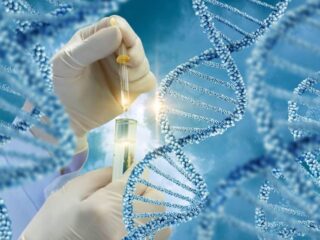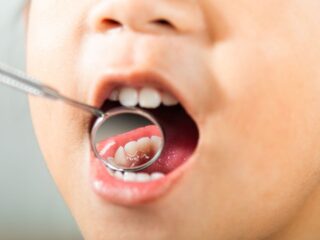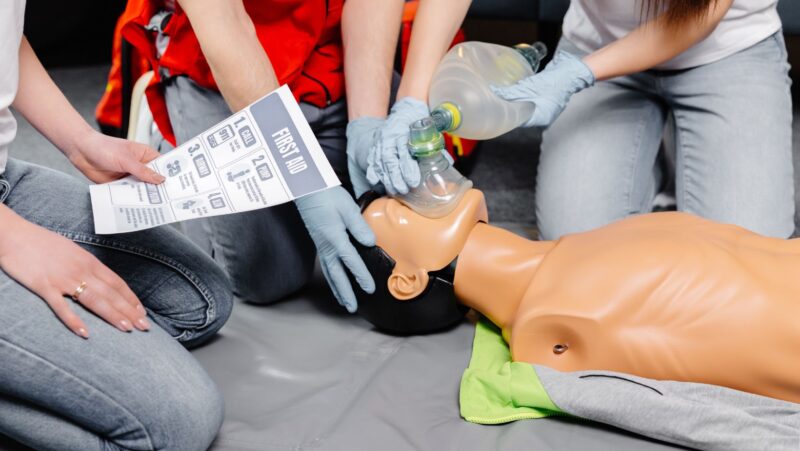
A Bachelor’s in Health Science opens doors to diverse career opportunities in healthcare and medical services. This versatile degree program equips students with fundamental knowledge about human health, disease prevention and healthcare systems while preparing them for various professional paths in the medical field.
Students pursuing this undergraduate degree develop a strong foundation in biology, anatomy, public health and healthcare administration. The curriculum combines theoretical knowledge with practical applications enabling graduates to understand complex health issues and contribute to improving community wellness. Whether someone’s interested in direct patient care clinical research or healthcare management a health science degree serves as an excellent starting point for achieving their professional goals.
What Is a Bachelor’s in Health Science
A Bachelor’s in Health Science degree provides comprehensive education in healthcare fundamentals medical science behavioral health. This undergraduate program combines biological sciences healthcare administration public health concepts to create a versatile foundation for healthcare careers.
Core components of the degree include:
- Anatomy physiology coursework focusing on human body systems functions
- Healthcare policy classes covering regulations industry standards ethics
- Public health principles addressing population health disease prevention
- Research methodology teaching evidence-based healthcare practices
- Healthcare technology training incorporating modern medical systems software
- Clinical management courses exploring healthcare facility operations
The typical program structure includes:
| Component | Credit Hours | Time Frame |
|---|---|---|
| Core Courses | 45-60 | 2 years |
| General Education | 30-45 | 1.5 years |
| Electives | 15-30 | 0.5 years |
| Total Credits | 120 | 4 years |
Program formats include:
- Traditional on-campus learning with hands-on laboratory experiences
- Hybrid models combining online theoretical classes with in-person practicums
- Fully online programs featuring virtual labs interactive simulations
- Accelerated tracks completing coursework in 3 years
- Part-time options extending completion to 5-6 years
Students develop essential skills in:
- Clinical assessment documentation procedures
- Healthcare data analysis interpretation
- Patient care coordination management
- Medical terminology communication
- Healthcare technology systems operation
- Quality improvement process implementation
- Direct entry into healthcare positions
- Advanced clinical education programs
- Healthcare administration roles
- Public health initiatives
- Medical research positions
- Health education careers
Core Curriculum and Course Requirements
A Bachelor’s in Health Science program features a structured curriculum that integrates scientific principles, clinical knowledge, and healthcare management concepts across 120 credit hours of coursework.
Health Science Fundamentals
The foundational courses in health science programs cover essential biological and medical concepts. Core requirements include:
- Anatomy & Physiology with laboratory components
- Medical Terminology for healthcare professionals
- Chemistry & Biochemistry fundamentals
- Microbiology & Disease Processes
- Health Promotion & Disease Prevention strategies
- Nutrition Science & Wellness principles
Clinical Research and Data Analysis
Students develop quantitative and analytical skills through specialized coursework in:
- Biostatistics for healthcare research
- Epidemiology methods & applications
- Research design & methodology
- Healthcare informatics systems
- Evidence-based practice evaluation
- Data visualization & reporting techniques
- Healthcare law & compliance standards
- Medical ethics & patient rights
- Public health policy implementation
- Healthcare systems administration
- Cultural competency in healthcare delivery
- Professional practice guidelines
- Quality assurance protocols
| Core Component | Credit Hours | Typical Course Level |
|---|---|---|
| Health Science Fundamentals | 30-35 | 100-200 level |
| Clinical Research | 25-30 | 300-400 level |
| Healthcare Policy | 20-25 | 300-400 level |
| Electives | 30-35 | Various levels |
Career Paths and Job Opportunities
A Bachelor’s in Health Science opens diverse career paths across healthcare sectors. Graduates enter roles in administration, public health, clinical support services with competitive starting salaries ranging from $45,000 to $65,000 annually.
Healthcare Administration Roles
Healthcare administration positions focus on managing medical facilities and healthcare operations. Common roles include:
- Healthcare Program Manager: Oversees clinical programs implementation
- Practice Administrator: Manages daily operations of medical practices
- Quality Improvement Coordinator: Monitors healthcare delivery standards
- Medical Office Manager: Directs administrative staff and facility operations
- Revenue Cycle Specialist: Handles medical billing and reimbursement processes
| Position | Median Salary | Growth Rate |
|---|---|---|
| Healthcare Program Manager | $71,280 | 28% |
| Practice Administrator | $65,320 | 32% |
| Quality Improvement Coordinator | $61,250 | 25% |
Public Health Positions
Public health careers concentrate on community wellness and disease prevention initiatives:
- Health Education Specialist: Creates health awareness programs
- Community Health Worker: Implements wellness initiatives
- Environmental Health Specialist: Assesses health hazards
- Epidemiology Assistant: Supports disease outbreak investigations
- Health Policy Analyst: Evaluates healthcare policies and programs
| Position | Entry Requirements | Average Salary |
|---|---|---|
| Health Education Specialist | Bachelor’s + CHES certification | $56,500 |
| Community Health Worker | Bachelor’s degree | $42,000 |
| Health Policy Analyst | Bachelor’s degree | $63,700 |
- Patient Care Coordinator: Manages patient care plans
- Clinical Research Assistant: Supports medical studies
- Medical Lab Technician: Performs diagnostic tests
- Healthcare Data Analyst: Evaluates clinical data
- Rehabilitation Aid: Assists with patient therapy programs
| Position | Work Setting | Starting Salary |
|---|---|---|
| Patient Care Coordinator | Hospitals/Clinics | $48,500 |
| Clinical Research Assistant | Research Centers | $45,800 |
| Medical Lab Technician | Laboratories | $52,300 |
Skills and Knowledge Gained
A Bachelor’s in Health Science program cultivates essential competencies through comprehensive academic coursework and practical training experiences. Students develop specialized expertise in healthcare delivery systems alongside critical thinking abilities.
Medical and Scientific Expertise
Students gain extensive knowledge in core medical and scientific domains:
- Understanding human anatomy physiology through detailed study of body systems functions
- Mastering medical terminology used across healthcare settings
- Analyzing disease processes pathophysiology at cellular molecular levels
- Applying principles of chemistry biology to human health conditions
- Interpreting clinical research data using biostatistics epidemiological methods
- Implementing evidence-based practices in healthcare delivery
- Operating medical diagnostic equipment laboratory technologies
- Managing healthcare data through modern information systems
- Coordinating patient care across multiple providers departments
- Communicating effectively with patients healthcare professionals
- Implementing quality improvement protocols in clinical settings
- Analyzing healthcare policies regulatory requirements
- Creating health education programs for diverse populations
- Conducting needs assessments program evaluations
- Applying ethical principles in medical decision-making
- Developing leadership skills for healthcare team management
| Core Competency Area | Skills Developed |
|---|---|
| Clinical Skills | Patient assessment documentation care planning |
| Technical Proficiency | Medical software EMR systems laboratory equipment |
| Research Abilities | Data analysis methodology design reporting |
| Management Skills | Project coordination resource allocation budgeting |
Program Duration and Study Options
A Bachelor’s in Health Science program spans 120 credit hours completed over 4 years of full-time study. Students choose from multiple learning formats that accommodate diverse schedules and learning preferences.
Traditional Campus Programs
Traditional campus programs offer face-to-face instruction with structured class schedules and direct interaction with professors. Students attend 15-week semesters with 12-15 credit hours per term featuring:
- Laboratory sessions for hands-on clinical skills practice
- In-person study groups and peer collaboration opportunities
- Direct access to campus resources like science labs and medical libraries
- Scheduled office hours with professors for personalized guidance
- Clinical rotations at local healthcare facilities
- Asynchronous coursework completion within weekly deadlines
- Interactive video lectures and virtual lab simulations
- Digital collaboration tools for group projects
- 24/7 access to course materials and recorded sessions
- Accelerated 8-week terms for faster completion
- Part-time options taking 5-6 years to complete
- Hybrid formats combining online and on-campus components
- Virtual office hours and online tutoring services
| Program Format | Duration | Credits Per Term | Total Program Length |
|---|---|---|---|
| Traditional Full-time | 15 weeks/semester | 12-15 credits | 4 years |
| Online Accelerated | 8 weeks/term | 6-9 credits | 3-4 years |
| Part-time Online | 15 weeks/semester | 6-9 credits | 5-6 years |
| Hybrid Format | Varies | 9-12 credits | 4-5 years |
Admission Requirements and Prerequisites
Bachelor’s in Health Science programs maintain specific entrance criteria to ensure student success. Applicants must submit:
- High school diploma or equivalent with a minimum GPA of 2.5-3.0
- Official transcripts from all previous academic institutions
- SAT scores (typically 1000+ combined) or ACT scores (20+ composite)
- Letters of recommendation from academic or professional references
- Personal statement outlining career goals in healthcare
Required prerequisite courses include:
- Biology with laboratory (2 semesters)
- Chemistry with laboratory (2 semesters)
- Mathematics through pre-calculus
- English composition (2 semesters)
- Introduction to Psychology
Additional admission components include:
- Background check clearance for clinical placements
- Current immunization records
- Basic life support certification
- Health insurance coverage
- Physical examination documentation
| Requirement Type | Typical Minimum Standards |
|---|---|
| High School GPA | 2.5-3.0 |
| SAT Combined Score | 1000+ |
| ACT Composite Score | 20+ |
| Prerequisite Course GPA | 2.75+ |
| Letters of Recommendation | 2-3 |
- College transcripts showing completed prerequisite courses
- Minimum college GPA of 2.75
- Course syllabi for transfer credit evaluation
- Completion of at least 24 transferable credit hours
- Good academic standing documentation from previous institutions
Healthcare Administration
A Bachelor’s in Health Science serves as a versatile foundation for those seeking to make their mark in healthcare. This comprehensive degree opens doors to numerous career paths while providing essential knowledge and skills needed in today’s evolving healthcare landscape.
Whether pursuing clinical roles direct patient care or focusing on healthcare administration the program’s flexible learning formats make it accessible to students with varying needs and schedules. With strong job prospects competitive salaries and opportunities for advancement graduates are well-positioned to build rewarding careers while making meaningful contributions to healthcare delivery and public health.













